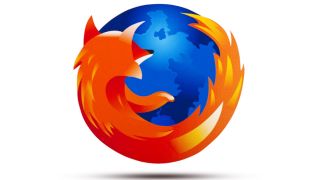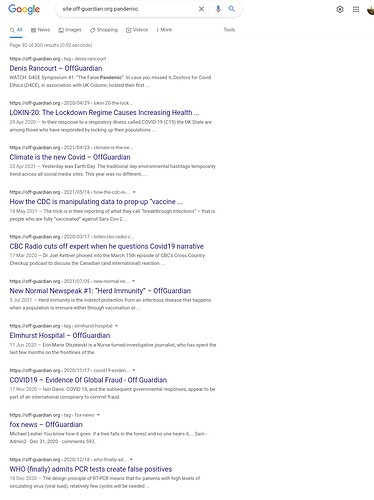I watched these two videos today, quite shocking, I didn’t know this was in fact happening. Feedback? Without going back to all the technicalities of climate change stuff, shouldn’t just looking at search results give us a clear idea of what BigTech wants us to think? And we can repeat this with other topics. As this guy shows, even a search for ‘pancakes’ gets you limited results…
E, can you do a bit of exegesis on what he’s on about. He’s not exactly the most cogent of explainers. Can you put it into language the pre-computer age-groups can understand, please?
He’s encouraging us all to do the experiment with different search engines. Which I did and he’s right. After a certain number of pages, poof, no more results. Try it.
Like the background in cheap cartoons, repeating like wallpaper when the characters are maybe in a car or running away from something.
It says it has omitted ‘similar’ items and seems to offer you the option of showing them all anyway - but when you try this you don’t get anything different, just a couple more pages of repetition before it runs out again.
I’ve noticed that sometimes a search degenerates into showing pages of items basically unrelated to the search items while not showing stuff that must be there. But I didn’t grasp the problem, because I could usually find something by being more specific even if I have to guess a keyword or two.
But that’s searching when you already have a pointer, like when someone has mentioned it. If you don’t expect something non-mainstream (or specifically, against the official narrative) to be there you won’t find it without the clue.
In other words if the algorithm thinks you know it’s there it will still show it. But if you don’t, it won’t show it.
Maybe for non-mainstream articles it then ‘calculates’ that fewer people are ‘reading’ them (because it doesn’t show them!), thereby starving independent sources of support, income and interest.
And you can also expect that in time what you can find even with relevant keywords will also be restricted - why wouldn’t it just omit results that have, by this pocklery, lost their ‘relevance’, as cynically arranged by google.
Yes, if you search for ‘pancakes’ the search results will be ‘One billion results’, but if you go through the pages, on page X, for example page 40, the search results end. So in fact you don’t have ‘one billion results’, you have, say, 500.
Also he shows that on some search engines the wikipedia entry is repeatedly, page after page, at the top. For those of you familiar with the ‘Philip Cross’ saga and the obvious deep state control of wikipedia this should not surprise you.
Also he shows that for ‘controversial’ subjects like climate change the search results are not only limited, they are almost all state/corporate media with a narrow spectrum of opinion.
I encourage everyone to do their own experiments and see what we can learn.
What I don’t get is why no-one has written an independent search engine which is free of these vested interests. It should be possible to have options - from only or mostly mainstream to only or mostly independent, and including an ‘everything’ option.
Maybe someone has and it was filtered out…
What I’m finding lately is that - as you say Evvy - with the right detail in the search, useful things still come up.
I guess it’s to be hoped that before long Russia and China will be offering English-language search engines, just to keep the Western scammers on their toes. Not that those alternatives would be any less steerable, of course; and pretty certainly steered. But when rivals compete, honest plebs may be able to find the odd crumbs of truth they seek, in the dust-up.
One thing that comes clear from these vids is just what I’ve been insisting for some time: Never have anything AT ALL to do with Wikideceivia. An unreformable cess-pit of lies, inherently deceitful, only fit for MOAB bombing to buggery.
Wikideceivia delanda est!
…and maybe it’s time to add google too…?
Well yes. Though I can envisage a slight problem there, they will accuse everyone of being Putin bots - but it’s okay, as they’re doing that already…
Might be time to check out all those proxy servers and VPNs
Interesting discussion. Its not news that search providers do tinker with results, sometimes in nefarious or tricksy ways (such as promoting WiCIApedia results) but sometimes in helpful ways too.
Relatively few people will click through more than a small number of screens of results, unless you absolutely know a result exists.
I use Brave browser and their own search tool. I am sure the results will be bubbled in various ways. In other words tailored to the sorts of things I’ve searched for before, but also with a geographical filter. I’m not going to want to sit down to a slap up meal of pancakes in Miami, so Brave shows me results for Maidstone, for example. It also shows me recipes in English units not US “cups and fluid ounces” bollox.
Bookmark your favourites and export a copy regularly in case your browser breaks (or is sabotaged). Try using search parameters as per example below:
That was page 30 of 30 btw.
Without the site: prefix the results (page 1"in any case) are The Usual Suspects
I put ‘skripal’ in google. because it’s current and controversial.
Around 10 results a page.
Page 15 of results says 1,400,000 results.
Page 16 says 165 results.
None I found were ‘alternative’ to the govt narrative.
I tried the bottom of the page link to ‘more results that we have omitted’
Page 41 says 1,480,000 results.
Page 42 is the last page and says 416 results. That’s all you get.
And no alternative viewpoints that I could see. Thus this is a form of high tech censorship.
You need to add the right search parameters.
Try
skripal conspiracy theories discredited tinfoil
and they all come up ![]()
![]()
In my opinion Rhis, long, long, long overdue. A new age Monsanto. It’s not just the search engine that’s abhorent and criminal. It’s their whole tracking of movement via mobile phone. And then ‘meta data’ that they get from every double authentication, access to Google Play to get the latest gizmo on your phone, Google Maps, so they can not only locate you, but know everyone with whom you communicate. Interesting that Facebook is now called Meta, also owned by Alphabet, the owners of Google!
For those of you with smartphones who don’t like to be tracked and go to airplane mode, your bluetooth still passively picks up other blutooth signals and of course unloads that to Google or Apple when you are back online, so surreptitious surveillance even when you think it’s off!
I agree that refining the search terms, making them more detailed, brings better results.
But that’s not the point, in my opinion.
Why does Google show ‘millions of results’ then stops giving you results after four or five hundred?
Why are there zero or basically zero non state/corporate results when you use the general term?
The general term is almost certainly what the vast majority will use when researching a topic. They will find nothing wihich contradicts the state/corporate narrative after forty pages of search. So, their natural conclusion is ‘ok, I’ve done my research. The Guardian is right.’ Something like that.
When you watch the two videos I posted originally you’ll see that the basic concept he’s trying to get across is that 1 General Search terms, of all kinds, are limited to around 500 choices 2 General search terms of controversial subjects are limited to around 500 choices and don’t include links to sources that challenge the state/corporate narrative.
I agree that if you detail your search, you can even find this site. But that’s not the point…the point is that searching for GENERAL terms results in a very limited number of results and if that term is of a controversial topic it’s limited even more by the focus on state/corporate sources.
I have not seen this, do you have any evidence or a source for this? thanks in advance, Everyman
Obvious conclusion: Have nothing to do with mobile phones; or google.
My bad. It’s YouTube that is also owned by Alphabet! It’s my fault for mixing all the criminals up.
I completely agree - my little joke is actually true! It works only because google will still provide most links if you have a strong enough clue. This of course can gradually be made to slide and we could end up with only being able to retrieve things that we have already seen.
In parallel with that there’s the move to police stuff off the internet anyway, using the Online Safety Bill. This will make the internet a safer place for liars
Of course we knew about the Online Harms bill, and the internet’s days’s were numbered. Your video shows like it’s more like ‘over’ - a stark reality that we need to take on board. Thanks for highlighting it.
At a guess the algorithm that throws out the “X results similar to this have been omitted” will only chuck out one last page of (possibly identical) stuff. Clever.
I noticed that the Google news aggregator page has an immovable Fact Checked section which reveals, for example, that a video of Joe Biden wandering off during a presentation had been faked to include an ice cream van.
So now memes and jokes are being targeted. Which is itself almost satirical. The underlying determination to suppress opinions is iron-clad, alas. Yet Biden still praises Rushdie for speaking out.
In other news: war is peace. Hurrah.
Definitely recognize some of this. There’s nothing like an unwanted ‘update’ resetting your choices to start your day.
ED
Mozilla claims Apple, Google and Microsoft force users to use default web browsers
Mozilla fires shots at tech giants regarding allegedly anticompetitive practices
By Will McCurdy
published about 15 hours ago
- (opens in new tab)

(Image credit: Shutterstock / tanuha2001)
Audio player loading…
Mozilla, the non-profit proprietor of the Firefox browser, has accused Google, Microsoft, and Apple of “self preferencing” and nudging consumers towards using their own browsers.
Examples of consumer harm stemming from this self-preferencing behavior include limited or frustrated choice, lower quality, lower innovation, poor privacy, and unfair contracts, according to Mozilla.
The report lands at a time when “self preferencing” remains a hot topic in the tech regulation space; the UKs competition watchdog has published a final report (opens in new tab) highlighting “substantial concerns” about the market dominance of Google and Apple.
What does the report allege?
Mozilla’s report accuses the big tech firms of a wide variety of different instances of malpractice.
RECOMMENDED VIDEOS FOR YOU…
CLOSE
These include inhibiting independent app discovery, citing how some companies bundle their respective browsers with their operating systems and set them as the operating system default in the prime home screen or dock position.
“For many people, this placement is sufficient and they will not see or pursue extra steps to discover alternatives,” said the report.
Mozilla also called out some big tech firms for prohibiting independent app adoption, citing how Apple lacked settings to switch away from Safari as the default browser until 2020 — meaning that iOS consumers trying to use another browser were locked into continued Safari usage for 13 years.
The report then highlighted how Safari still cannot be deleted from iOS.
READ MORE:
> WS could be facing antitrust scrutiny
> EU antitrust regulators set their sights on Microsoft’s cloud business
In addition, the report accused big tech of overriding independent app adoption calling this “even more egregious than prohibiting rival software adoption”.
Mozilla alleged that this has been the case on Microsoft Windows computers for a number of years, “saying consumers have faced increasingly aggressive practices, some of which have been aimed at reversing their decisions to use non-Microsoft software, for example, overriding default browser choice and reverting to Edge”.
“Consumers should have control over their online experiences and be able to choose which software they wish to use, including something different from what the operating system provider offers,” said a Mozilla spokesperson. “People should not have to fight with operating systems that continuously pester, confuse and revert preferences in favor of their own software”.
“Browser wars” are nothing new, in the late 1990’s Microsoft’s Internet Explorer famously pushed Netscape’s Navigator out of business.
Google is an example of one big tech firm that has been responsive to these accusations about it throwing its weight around, and the threat of anti-trust legislation.
In a blog post (opens in new tab), Google’s president of global affairs Kent Walker said that potential antitrust regulations “would impose one set of rules on American companies while giving a pass to foreign companies” and that they “would give the Federal Trade Commission and other government agencies unprecedented power over the design of consumer products”.
Walker added: “All of this would be a dramatic reversal of the approach that has made the U.S. a global technology leader, and risks ceding America’s technology leadership and threatening our national security, as bipartisan national security experts have warned”.
- We’ve also featured the best Linux distros for privacy and security
By Will McCurdy
Nice include, thanks @Evvy_dense. It’s not official yet but I’m planning on retiring before the end of the year and won’t miss the strangulation of corporate systems, ways of working, thinking, by Microsoft one tiny bit.
Because work is such a fun place the corporate versions of Windoze like to include these little helpful things like upcoming weather, news headlines, Beyonce’s latest choice in bras, etc, in little widgets or notifications or whatever it is called this week. You need only accidentally hover over any of this gunk for a much larger summary of pointless crap to invade your space and each little icon will open Edge browser and try to change your settings for the nth time…
“How do I make it stop?” people ask. The truth is I don’t even know or care anymore because there’s no way Techtopia will ever change their ways.
By the way I loved the quote about how antitrust regulations will only penalise decent American companies and give foreign competitors an unfair advantage. (Such as…?)
Even the biggest bullies use this Victim 555 strategy to try and make the hurty thing go away.



